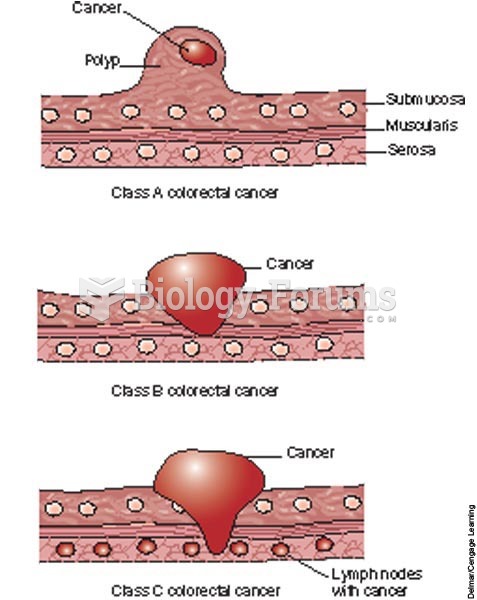Answer to Question 1
1,2,4
Rationale 1: Subtle signs of pain such as hesitancy to move and grimacing may occur and should be recognized.
Rationale 2: Often the problem in controlling pain of any type is that the patient gets behind the pain rather than medicating for it before it gets severe. Around-the-clock dosing helps to prevent playing catch-up to the pain.
Rationale 3: This plan would allow the pain to worsen before medication is given and would result in the patient getting behind the pain.
Rationale 4: Breakthrough pain is expected and may require additional pharmaceutical or nonpharmaceutical measures.
Rationale 5: While it is true that some cancer patients develop intractable pain, many are able to control pain to a level that is very tolerable.
Global Rationale: Subtle signs of pain such as hesitancy to move and grimacing may occur and should be recognized. Often the problem in controlling pain of any type is that the patient gets behind the pain rather than medicating for it before it gets severe. Around-the-clock dosing helps to prevent playing catch-up to the pain. Breakthrough pain is expected and may require additional pharmaceutical or nonpharmaceutical measures. While it is true that some cancer patients develop intractable pain, many are able to control pain to a level that is very tolerable.
Answer to Question 2
4
Rationale 1: Asking about medications is a good question but is not the priority.
Rationale 2: Asking about hypertension is a good question but is not the priority.
Rationale 3: Asking about illnesses is a good question but is not the priority.
Rationale 4: Alteplase (Activase) must be given within 3 hours of a thrombotic stroke for maximum effectiveness.
Global Rationale: Alteplase (Activase) must be given within 3 hours of a thrombotic stroke for maximum effectiveness. Asking about hypertension is a good question but is not the priority. Asking about medications is a good question but is not the priority. Asking about illnesses is a good question but is not the priority.







